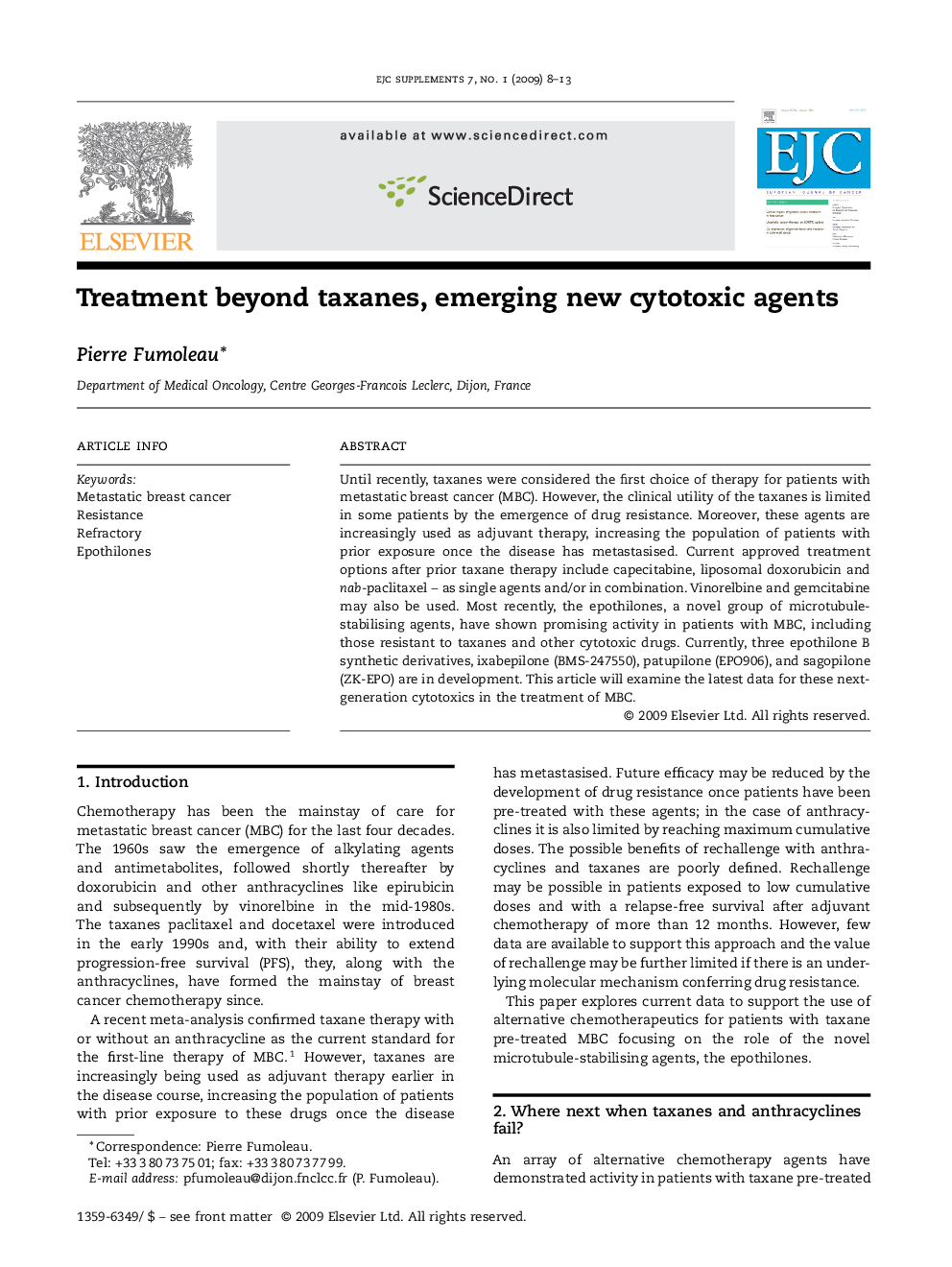| Article ID | Journal | Published Year | Pages | File Type |
|---|---|---|---|---|
| 2128762 | European Journal of Cancer Supplements | 2009 | 6 Pages |
Abstract
Until recently, taxanes were considered the first choice of therapy for patients with metastatic breast cancer (MBC). However, the clinical utility of the taxanes is limited in some patients by the emergence of drug resistance. Moreover, these agents are increasingly used as adjuvant therapy, increasing the population of patients with prior exposure once the disease has metastasised. Current approved treatment options after prior taxane therapy include capecitabine, liposomal doxorubicin and nab-paclitaxel - as single agents and/or in combination. Vinorelbine and gemcitabine may also be used. Most recently, the epothilones, a novel group of microtubule-stabilising agents, have shown promising activity in patients with MBC, including those resistant to taxanes and other cytotoxic drugs. Currently, three epothilone B synthetic derivatives, ixabepilone (BMS-247550), patupilone (EPO906), and sagopilone (ZK-EPO) are in development. This article will examine the latest data for these next-generation cytotoxics in the treatment of MBC.
Related Topics
Life Sciences
Biochemistry, Genetics and Molecular Biology
Cancer Research
Authors
Pierre Fumoleau,
